#Gandhi Mohandas Karamchand Mahatma
Explore tagged Tumblr posts
Text
Mahatma Gandhi: Prayer
“Prayer is not asking. It is a longing of the soul. It is daily admission of one’s weakness. It is better in prayer to have a heart without words than words without a heart.” —Mahatma Gandhi.
View On WordPress
0 notes
Text
Frases Célebres
Frases Célebres Mohandas Karamchand Gandhi "Mahatma" (1869-1948) #aperturaintelectual #frasescelebresaintelectual
“No hay camino para la paz, la paz es el camino.” Mohandas Karamchand Gandhi “Mahatma” (1869-1948) Abogado, activista, escritor, líder independentista, filósofo, pacifista, pensador y preso político indio. Sigue Apertura Intelectual en todas nuestras redes: WordPress Facebook Twitter Instagram LinkedIn Tumblr Reddit Mastodon Te invitamos a que califiques esta información. ENTRADAS…

View On WordPress
#AperturaIntelectual#frasescelebresaintelectual#Abogado. activista. escritor. líder independentista. filósofo. pacifista. pensador y preso político indio#Camino#Frases Célebres#Mohandas Karamchand Gandhi "Mahatma"#Paz
2 notes
·
View notes
Text




"First, they ignore you, then they laugh at you, then they deride you, then they insult you, then they scold at you, then they threaten you, then they attack and fight you, then they annihilate you,… and then you lose ! …and even IF you "win", you won't be satisfied with your "Achievements" and the Outcome, and you will become entangled in Contradictions and Inconsequences, so much that you don't see a Way OUT again ! You will lose ALL Benefits, ALL Support, ALL Trust, ALL Credibility and ALL Understanding for ALL Time… so that you can't tell if you would not just rather want to get ignored and forgotten for all Time… rather than being stigmatized as and treated like the worst Evildoer of all Mankind and of all human History!"
based on: Mohandas Karamchand GANDHI
#Gandhi#Mohandas Karamchand Gandhi#Mahatma Gandhi#Marshall Rosenberg#Nonviolence#nonviolent#Non-Violence#non-violent#Gewaltlosigkeit#gewaltlos#Nichtigkeit#Vergeblichkeit#Verdruß#Verdrossenheit#Verbitterung#Embitterment#Bitterness#Desolation#Verzweiflung#Hilflosigkeit#Helplessness#Cluelessness#Ratlosigkeit#Aussichtslosigkeit#Pointlessness#Impuissance#Désolation#Futilité#Vanity
0 notes
Text
Mohandas Karamchand Gandhi 2 October
आज, गांधी जयंती के इस विशेष अवसर पर, मैं महान महात्मा गांधी का सम्मान करने के लिए आपके सामने खड़ा हूं, एक ऐसे व्यक्ति जिनकी विरासत आज भी दुनिया को प्रेरित करती है। आपका ज्यादा समय न लेते हुए, मैं आपको गांधीजी के हमारे देश और दुनिया पर पड़े गहरे प्रभाव की याद दिलाना चाहता हूं

1 note
·
View note
Text




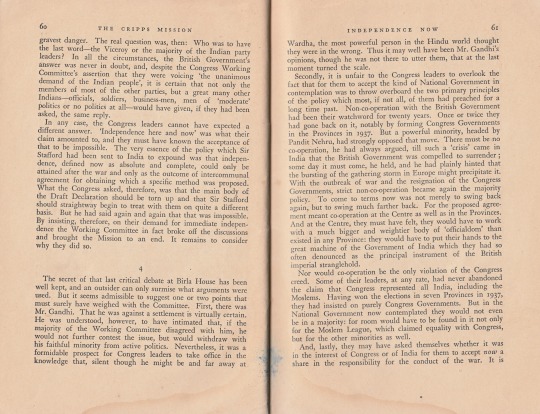
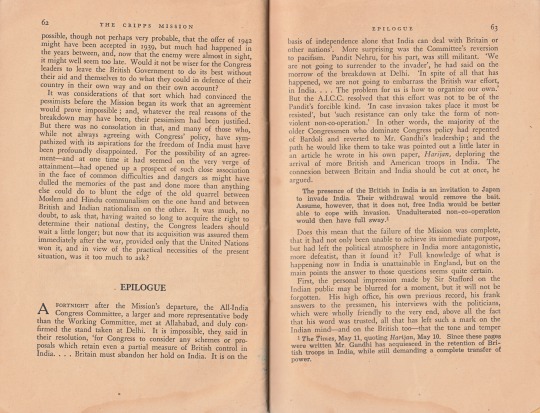
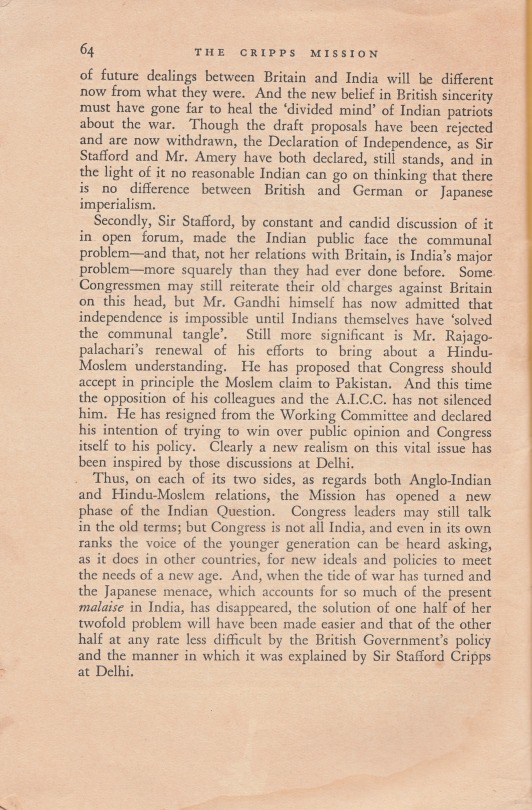

#The Cripps Mission#Cripps Mission#March 1942#1942#World War II#British government#Stafford Cripps#Sir Richard Stafford Cripps#Indian National Congress#INC#the Congress Party#Congress#Mahatma Gandhi#Mohandas Karamchand Gandhi#Gandhi#Mahātmā#Muhammad Ali Jinnah#محمد علی جناح#Mahomedali Jinnahbhai#Baba-e-Qaum#Quaid-e-Azam#مُحَمَّد عَلِی جِنَاح#Jinnah#All-India Muslim League#AIML#Muslim League#British India#Indian subcontinent#Freedom#Independence
0 notes
Note
what does your title ‘moon grocer’ mean?
if you search ‘gv desani’ on my blog you’ll find the specific passage, but it’s a bit from his novel All About H Hatterr. He’s joking about the old orientalist tendency to literally translate Asian names, and he gives some examples: one of them is Mahatma Mohandas Karamchand Gandhi, which he literally renders (as if anyone would do that or understand the name that way) as ‘Great-Soul Fascination-Slave Action-Moon Grocer’. I thought it was funny
20 notes
·
View notes
Text
THE 150 GREATEST (FORMAL & INFORMAL) PERSONALITIES IN THE KNOWN HISTORY/COLLECTIVE CONSCIOUSNESS OF INDIA !
(THE FREE-FOR-ALL LIST, NOT RESTRICTED TO PADMA AWARDEES OR STAMP HOLDERS, EVEN IF INCL A MAJORITY OF THEM )
Ie. THE 150 GREATEST PEOPLE IN INDIAN HISTORY !
Rajesh Khanna
C.V. Raman
Online Indie
Jayaprakash Narayan
J.R.D. Tata
Subhash Chandra Bose
Swami Vivekananda
Lal Bahadur Shastri
Srinivasa Ramanujam
Bhagwan Sri Sathya Sai Baba
Valmiki
Bhagwan Shri Shirdi Sai Baba
Ramakrishna Paramhansa
Bhagwan Shiva
Bhagwan Ganesha
Mata Parvati / Amma Karunamayi
Bhagwan Krishna
Bhagwan Ram
Bhagwan Mahavira
Maharana Pratap
Jagadish Chandra Bose
Major Dhyan Chand
Govind Ballabh Pant
Lala Lajpat Rai
Dhirubhai Ambani
Meena Kumari
Mother Teresa
Chhatrapati Shivaji
Bal Gangadhar Kher
Madan Mohan Malviya
Kishore Kumar
Dr. Sarvapalli Radhakrishnan
Dr. Bhagwan Das
Guru Nanak
Allama Mashriqi
Lokmanya Tilak
Tansen
Lord Hanuman
Vithalbhai Patel
Atal Behari Vajpayee
P.U.M. Thevar
Nandlal Bose
Rabindranath Tagore
Dr. Babasaheb Ambedkar
Prem Chand
Jesus Christ
Adi Shankaracharya
K. L. Saigal
N. T. Ramarao
Dr. Devi Prasad Shetty
B. R. Chopra
Viswanathan Anand
Sri Aurobindo
Rani Laxmibai
Chakravarti Rajagopalachari
Narendra Modi
Milkha Singh
Mirza Ghalib
Dr. K.S. Krishnan
Dr. Satyendra Nath Bose
Dr. Zakir Hussain
Dr. M. Visvesvaraiya
Satyajit Ray
Bankim Chandra Chatterjee
Ramana Maharishi
Radha (Ancient Krishna devotee)
Chandulal Madhavlal Trivedi
Mahatma Jyotirao Phule
Savitribai Phule
Lt. Col. Maharaj Kumar Namgyal
Shammi Kapoor
Indira Gandhi
Dev Anand
Jijabai
Sadhu Vaswani
Raja Ravi Varma
Saiyid Fazl Ali
Ashok Kumar
Dr. Madhav Shrihari Aney
Gopal Das Neeraj
Ajudhia Nath Khosla
Shashi Kapoor
Ustad Bade Ghulam Ali Khan
Dr. Arcot Lakshmanaswami Mudaliar
Bipin Chandra Pal
Dr. Jnan Chandra Ghosh
Paramhansa Yogananda
Thiruvallavur
Buddha
Maharishi Patanjali
Dr. Nambi Narayanan
Dr. Verghese Kurien
Dadasaheb Phalke
Arjun (of Gita)
Waheeda Rehman
Dr. P.V. Kane
Jigme Dorji Wangchuk
Veer Savarkar
Thakkar Bapa
Ahilyabai Holkar
Rash Behari Bose
Sane Guruji
Maharishi Mahesh Yogi
Swami Ranganathananda
Dr. Shanti Swarup Bhatnagar
M. S. Subbalakshmi
Dr. Satish Dhawan
Chaitanya Mahaprabhu
Surdas
A. Ramaswamy Mudaliar
Mohandas Karamchand Gandhi
Prafulla Chandra Roy
Kabir (pre-independence poet)
Zubin Mehta
Kalidasa
Suchitra Sen
Tyagaraja
M. G. Ramachandran
Dr. Prabha Atre (classical singer)
Kavi Pradeep
Pt. Kishan Maharaj (tabla)
R.K. Laxman
Mirabai
Tulsidas
Uttam Kumar
Dr. K. Kasturirangan
Ashfaqullah Khan
Dr. Dhondo Keshav Karve
Ram Prasad Bismil
Chandrashekhar Azad
Tenzing Norgay
N.R. Narayana Murthy
Kumaran Asan
Bhai Vir Singh
Dr. Shyama Prasad Mukherjee
Dr. John Matthai
Subramanya Bharati
Pt. Omkarnath Thakur
Emperor Indravarman (of Srivijaya Empire (7th c – 12th c))
Vaidyaraj Sushil Kumar Jain (Jaipur, present day)
Sant Tukaram
Emperor Lalitaditya Muktapida (of Karakota Empire(7th c–9thc))
Peshwa Balaji Vishwanath (Maratha Empire)
Emperor Akbar (Mughal Empire)
Laxmikant-Pyarelal
R.D. Burman
Shankar-Jaikishan
S. D. Burman
Manoj Kumar
Mohammad Rafi .




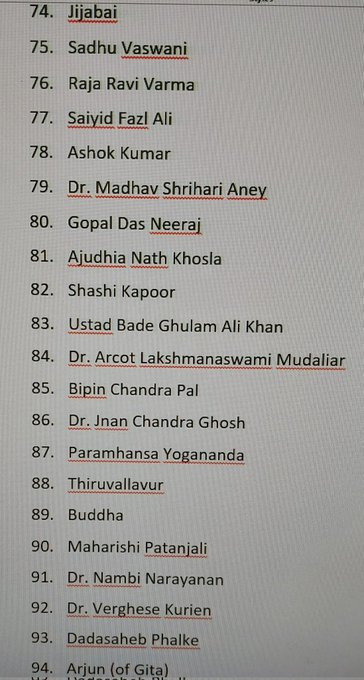
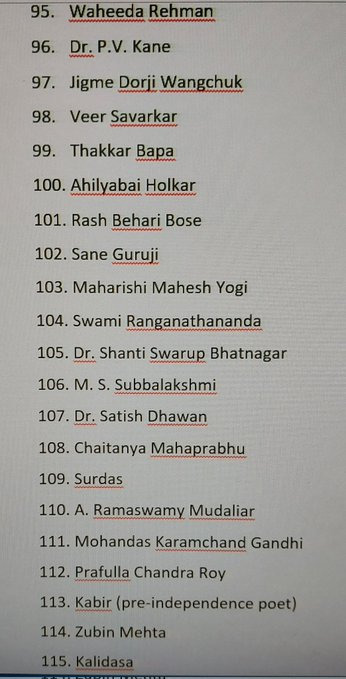



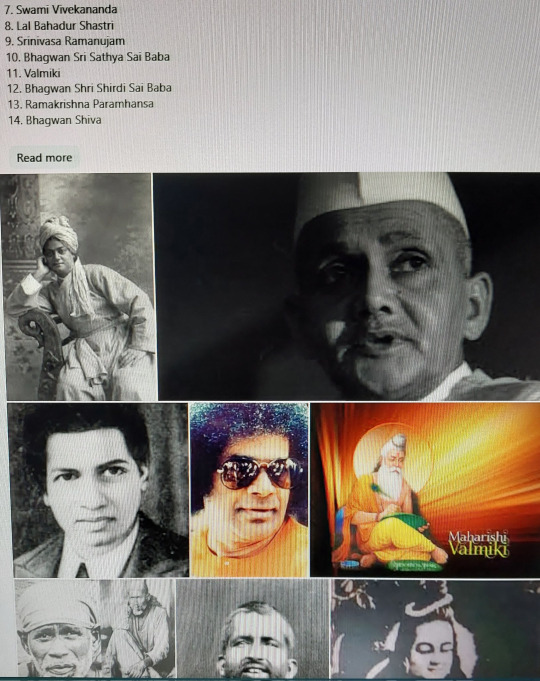
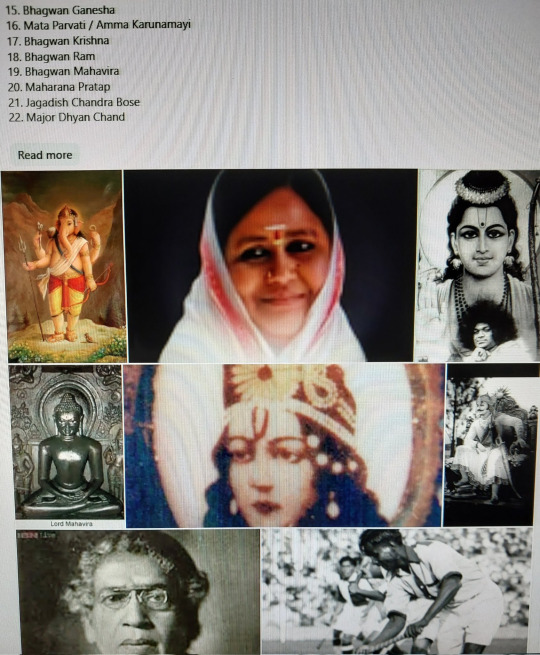



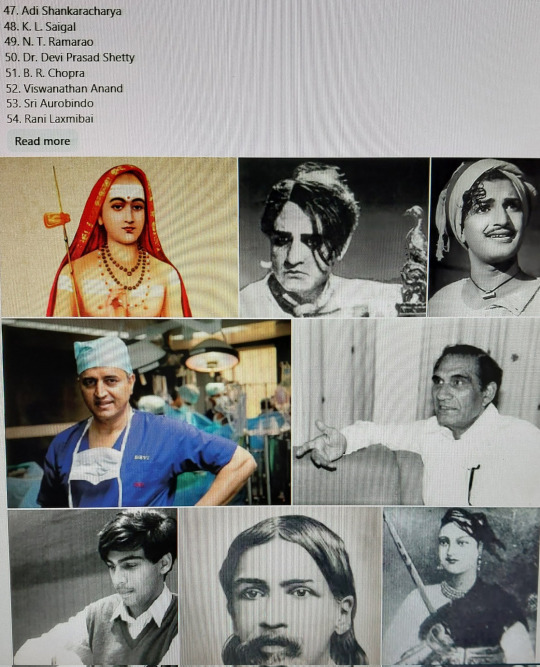




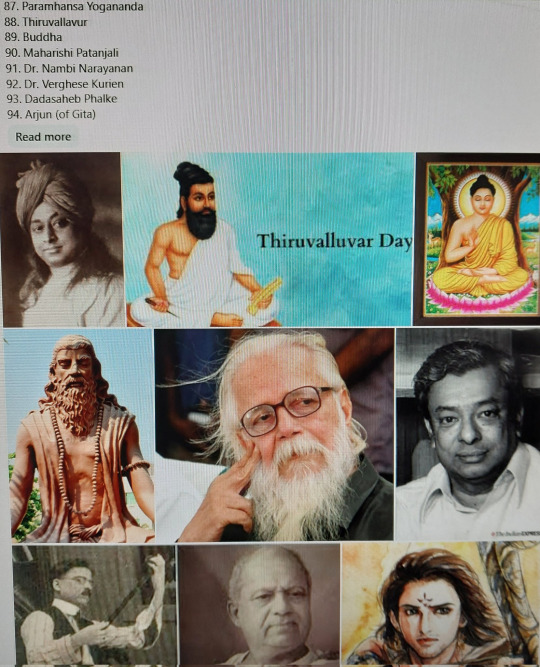
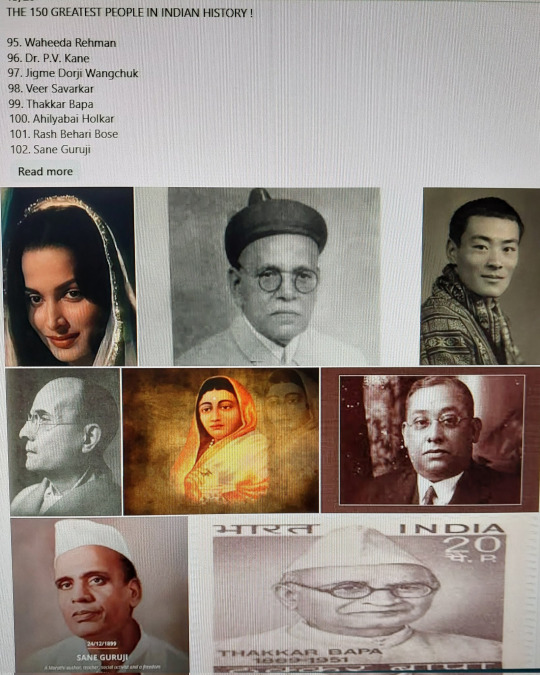


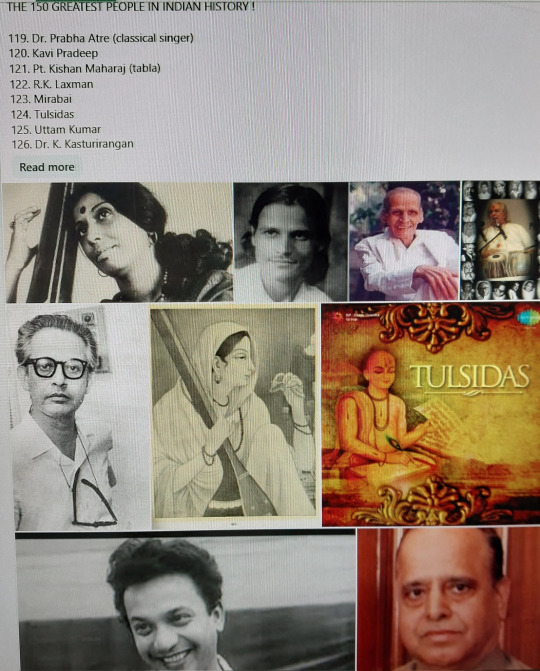
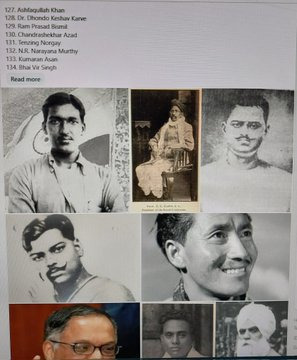
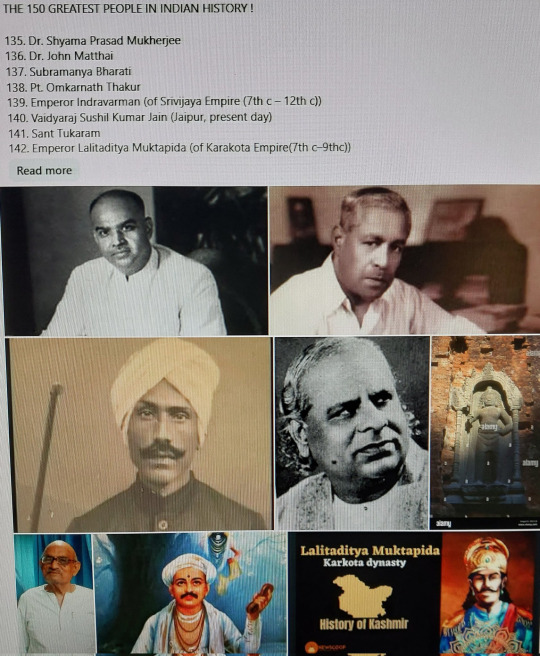

2 notes
·
View notes
Text
2 notes
·
View notes
Text
Mohandas Gandhi: Wisdom
“It is unwise to be too sure of one’s own wisdom. It is healthy to be reminded that the strongest might weaken and the wisest might err. ” —Mohandas Gandhi .
View On WordPress
0 notes
Text
Recordando a “Madiba”; luz y sombra
Recordando a “Madiba”; luz y sombra #aperturaintelectual #vmrfaintelectual @victormanrf @Victor M. Reyes Ferriz @vicmanrf @victormrferriz Víctor Manuel Reyes Ferriz
18 DE JULIO DE 2023 Recordando a “Madiba”; luz y sombra POR: VÍCTOR MANUEL REYES FERRIZ De manera general, no soy partícipe de que sean creados días especiales por algún acontecimiento, persona, suceso o causa ya que, esa es la primera línea de discriminación o por el contrario de resaltar “algo” como más importante que lo demás; empero, el día de hoy se celebra en todo el mundo el “Día…
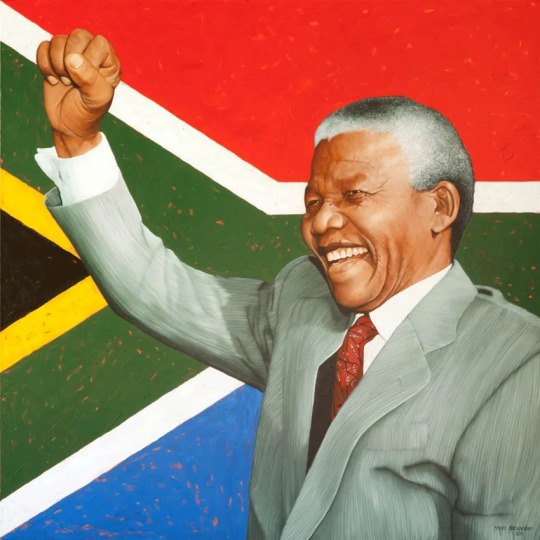
View On WordPress
#AperturaIntelectual#vmrfaintelectual#Afrikáneres#Apartheid#“Umkhonto we Sizwe” (La lanza de la Nación)#Congreso Nacional Africano#Corrupción mundial Sudáfrica 2010#Creación de Sudáfrica#Día Internacional de Nelson Mandela#Estado blanco#Frederik Willem de Klerk#Lado oscuro de Madiba#Lengua Xhosa#Mahatma Gandhi#Martin Luther King Jr#Michael King Jr#Mohandas Karamchand Gandhi#Nelson Rolihlahla Mandela “Madiba”#República de Sudáfrica#Segregación racial#Supremacía blanca#Víctor Manuel Reyes Ferriz#VMRF
2 notes
·
View notes
Text

Send from Sansgreet Android App. Sanskrit greetings app from team @livesanskrit .
It's the first Android app for sending @sanskrit greetings. Download app from https://livesanskrit.com/sansgreet
Kasturba Gandhi.
Kasturbai "Kasturba" Mohandas Gandhi born Kasturbai Gokuldas Kapadia on (11 April 1869 – 22 February 1944) was an Indian political activist. She married Mohandas Gandhi in 1883. In association with her husband and son, she was involved in the Indian independence movement in British-ruled India. She was very influenced by her husband Mohandas Karamchand Gandhi, Mahatma Gandhi.
#sansgreet #sanskritgreetings #greetingsinsanskrit #sanskritquotes #sanskritthoughts #emergingsanskrit #sanskrittrends #trendsinsanskrit #livesanskrit #sanskritlanguage #sanskritlove #sanskritdailyquotes #sanskritdailythoughts #sanskrit #resanskrit #kasturbagandhi #kasturba #kasturbai #gandhi #mohandasgandhi #mahatmagandhi #gandhiji #porbandar #gujarat #celebratingsanskrit #pune #bombay #agakhanpalace #activist #indianwomen
#greetingsinsanskrit#sanskritgreetings#sanskrittrends#trendsinsanskrit#livesanskrit#sanskrit#celebratingsanskrit#incredibleindia#indianarmy
0 notes
Text
Solved objective MCQ Quiz on Mahatma Gandhi - Objective History Exam
Solved objective MCQ Quiz on Mahatma Gandhi – Objective History Exam Multiple Choice Questions on Mahatma Gandhi Instructions: Each question has five options. Choose the correct answer. Questions 1. What was Mahatma Gandhi’s full name? a) Mohandas Karamchand Gandhi b) Mohanlal Karamchand Gandhi c) Mahadev Keshav Gandhi d) Mukund Krishna Gandhi e) Manohar Keshav…
0 notes
Text
Tribute to Mahatma Gandhi on His 77th Death Anniversary: Remembering the Apostle of Non-Violence

Introduction
On this solemn occasion of Mahatma Gandhi's 77th death anniversary, we pause to pay tribute to the apostle of non-violence, whose life and teachings continue to inspire millions around the world. As we remember the Father of the Nation, it is essential to reflect on his enduring legacy and the profound impact he has had on shaping modern India and global peace movements.
The Life and Legacy of Mahatma Gandhi
Mohandas Karamchand Gandhi, affectionately known as Mahatma Gandhi, was born on October 2, 1869, in Porbandar, Gujarat. His journey from a shy lawyer to the leader of India's independence movement is a testament to the power of conviction and the strength of character.
Key Milestones in Gandhi's Life:
1893: Arrival in South Africa, where he faced racial discrimination
1915: Return to India and involvement in the Indian National Congress
1917: Champagne Satyagraha, his first major non-violent protest in India
1930: Salt March, a defining moment in the Indian independence movement
1942: Quit India Movement, calling for immediate independence
Gandhi's Unwavering Commitment to Truth and Justice
The Mahatma, who embodied Dharma, is remembered first and foremost for his unwavering commitment to truth and justice. His philosophy of Satyagraha, or "truth-force," was the cornerstone of his non-violent resistance against British colonial rule.
Gandhi's Principles of Truth and Justice:
Ahimsa (Non-violence)
Satya (Truth)
Asteya (Non-stealing)
Aparigraha (Non-possession)
Brahmacharya (Celibacy)
These principles not only guided his personal life but also formed the basis of his political and social activism.
The Relevance of Gandhi's Teachings Today
In our increasingly polarized world, Gandhi's teachings remain as relevant today as they were during the struggle for independence. His emphasis on peaceful coexistence, religious harmony, and sustainable living offers valuable insights for addressing contemporary challenges.
Areas Where Gandhi's Teachings Apply Today:
Conflict resolution and peacebuilding
Environmental conservation and sustainable development
Social justice and equality
Interfaith dialogue and religious tolerance
Ethical leadership and governance
Non-Violence: The Supreme Force for Change
Gandhiji proved that non-violence is the supreme force that can bring about change and lead a nation to freedom. His successful application of non-violent resistance not only secured India's independence but also inspired civil rights movements worldwide.
Examples of Non-Violent Movements Inspired by Gandhi:
The Civil Rights Movement in the United States led by Martin Luther King Jr.
The Anti-Apartheid Movement in South Africa led by Nelson Mandela
The Solidarity Movement in Poland led by Lech Walesa
The Velvet Revolution in Czechoslovakia led by Vaclav Havel
These movements demonstrate the enduring power of Gandhi's philosophy in effecting social and political change.
Inspiring the Youth: Gandhi's Path of Truth and Perseverance
Gandhi's path of truth and perseverance serves as an inspiration for the youth of today, guiding them toward a future built on peace, harmony, and moral integrity. His life offers valuable lessons in leadership, self-discipline, and social responsibility.
Lessons for Today's Youth:
The importance of standing up for one's beliefs
The power of non-violent protest and civil disobedience
The value of simple living and high thinking
The significance of education and continuous learning
The need for ethical conduct in personal and professional life
Conclusion: Illuminating Our Journey
As we pay our respects to the Father of the Nation on his 77th death anniversary, we are reminded that Gandhi's ideals continue to illuminate our journey. His vision of a just, peaceful, and harmonious world remains a beacon of hope in these challenging times.
Let us honor Gandhi's memory by embodying his principles in our daily lives and working towards a better future for all. As Dr. Nowhera Shaik, MD & CEO of Heera Group of Companies, aptly stated, "Once again, I pay my respects to the Father of the Nation, whose ideals continue to illuminate our journey."
How will you incorporate Gandhi's teachings into your life? Share your thoughts and join the conversation about Mahatma Gandhi's enduring legacy using #RememberingGandhi.
#mahatmagandhi#gandhiji#nonviolence#indianindependence#truthandjustice#fatherofthenation#gandhianphilosophy#peaceandharmony#socialchange#ethicalleadership#indianhistory#freedomstruggle#youthinspiration#gandhilegacy#tributevideo#moralintegrity#gandhiteachings#historicalfigures#drnowhera#heeragroup#jubileehills#nowherashaik
0 notes
Text
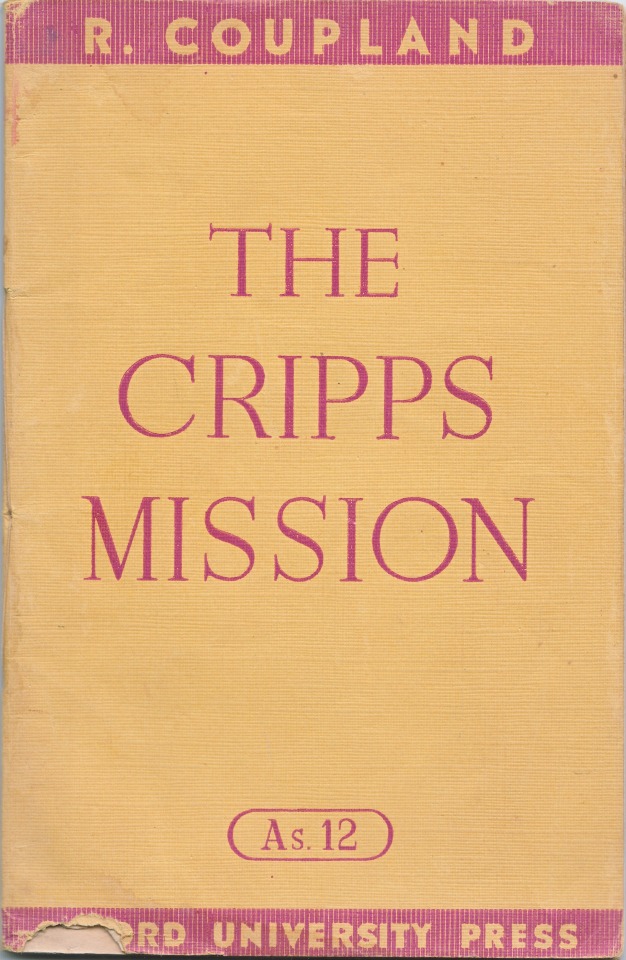
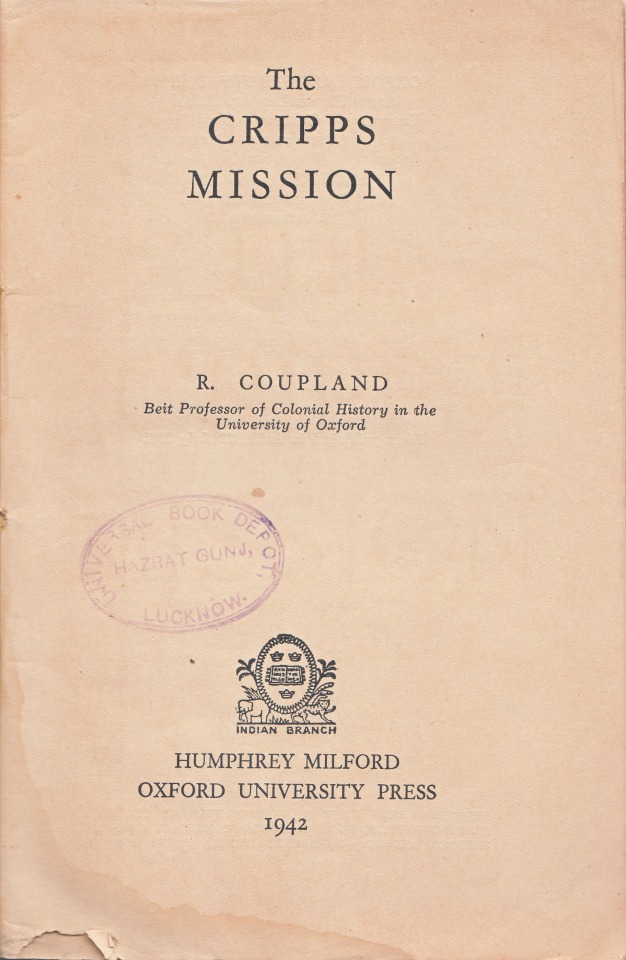
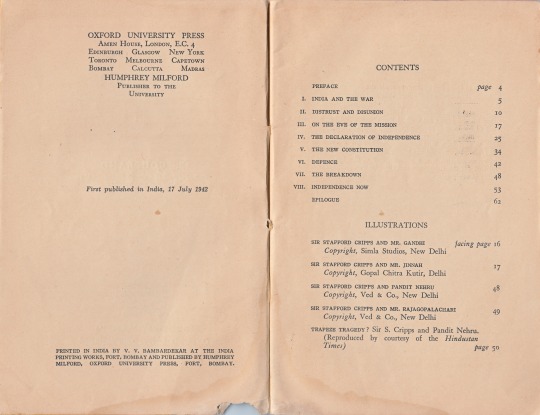
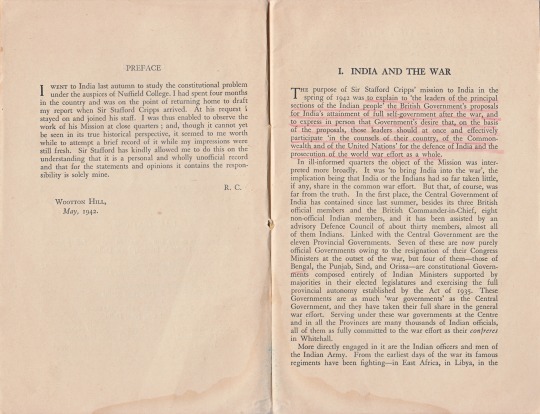
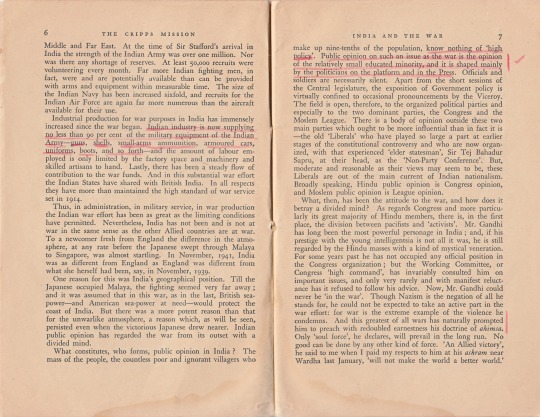
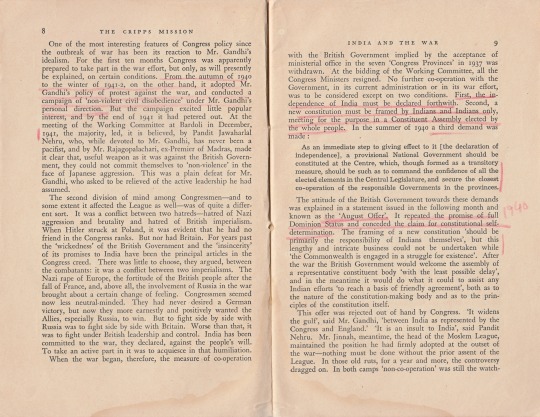
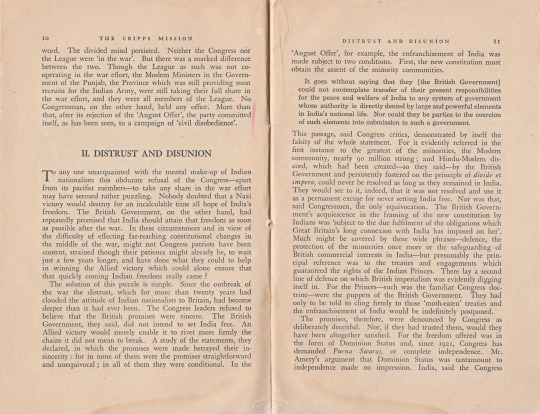
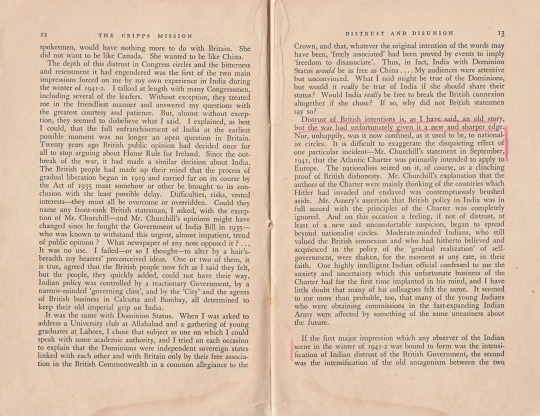
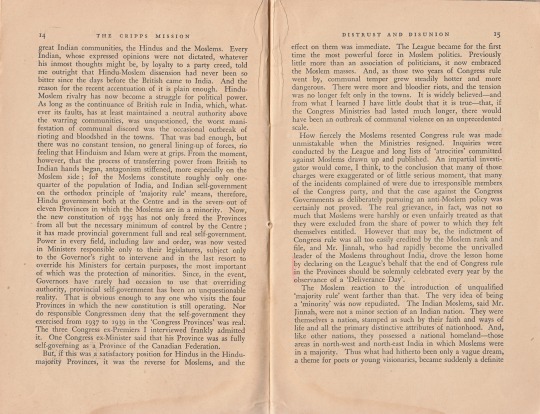
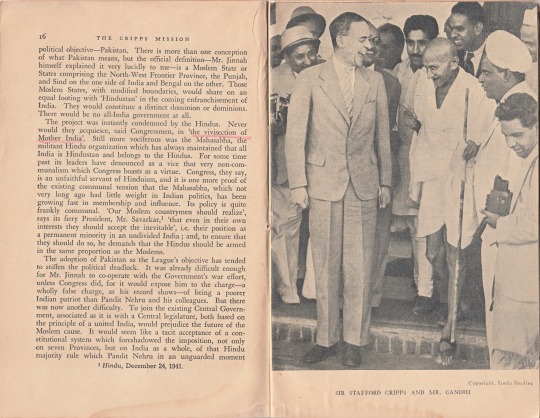
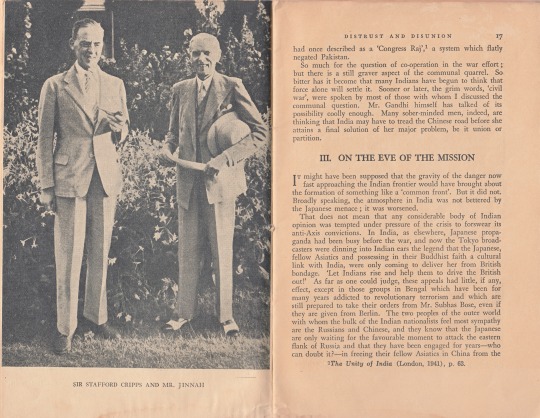

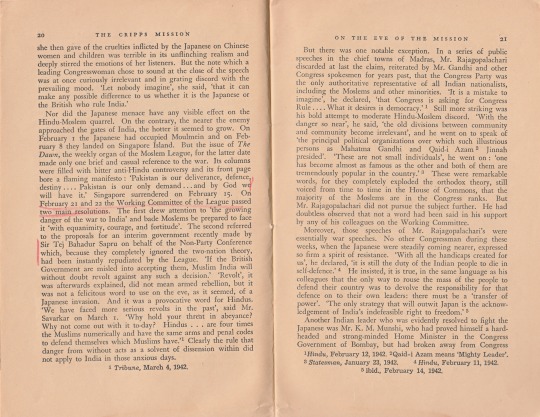
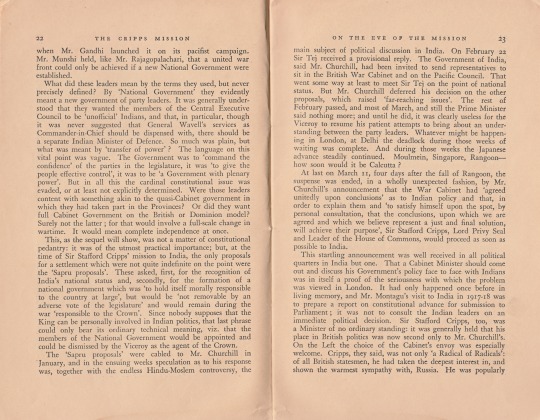
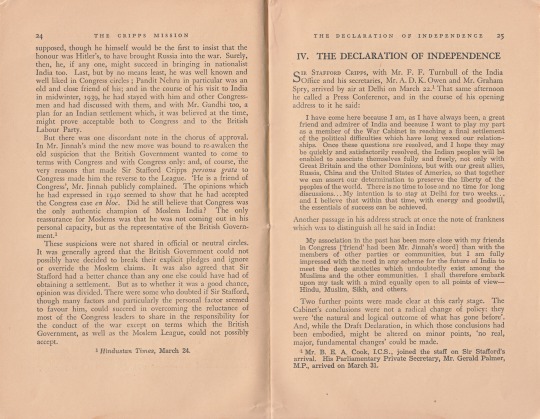
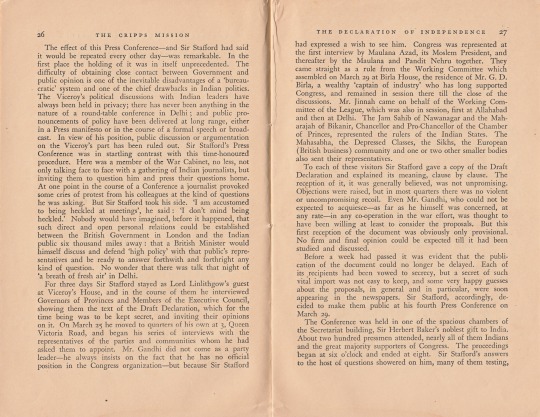
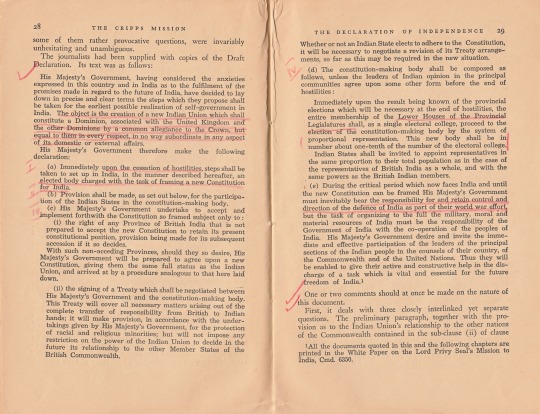
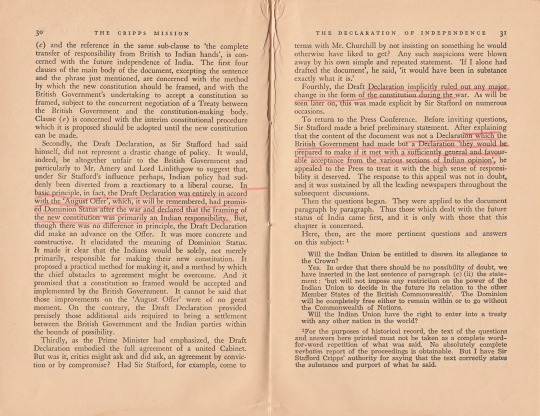
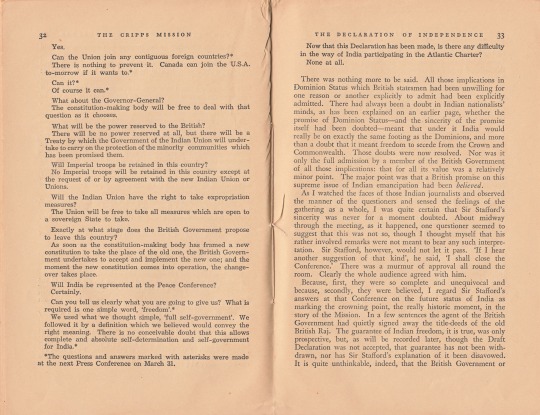
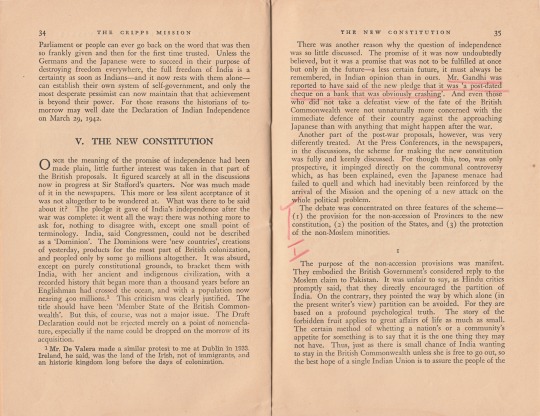
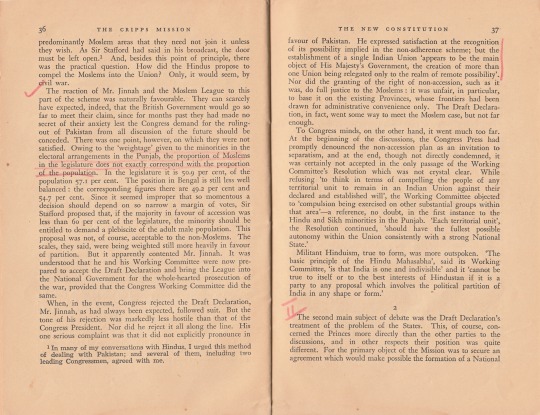
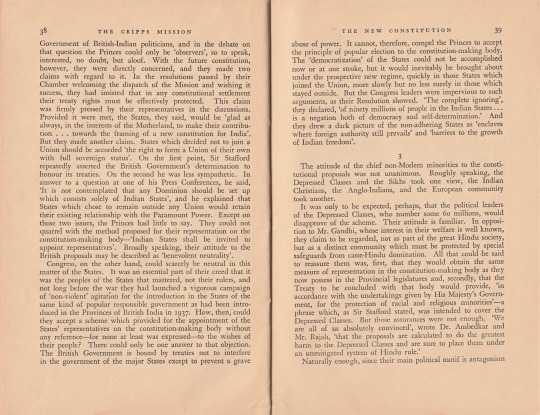
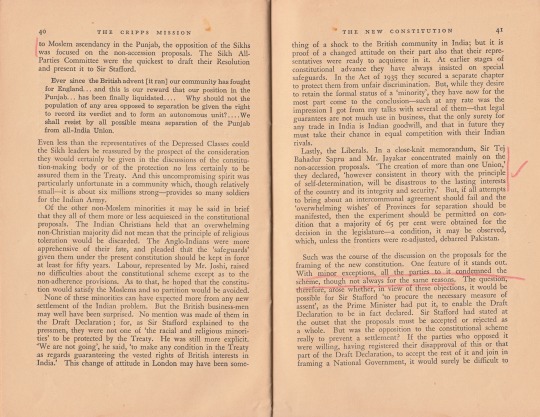
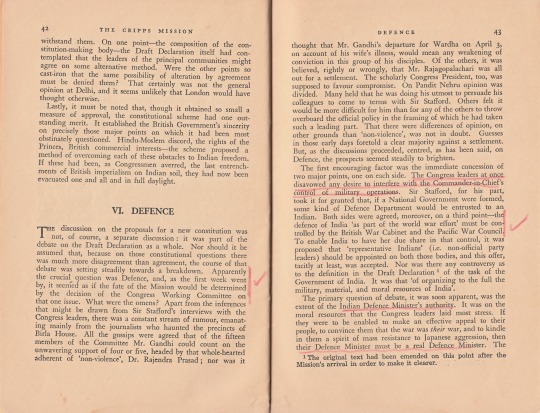
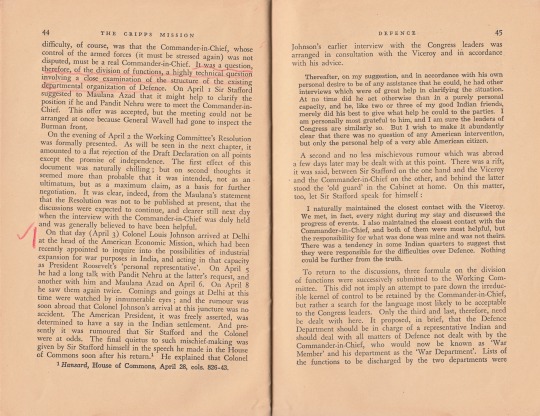
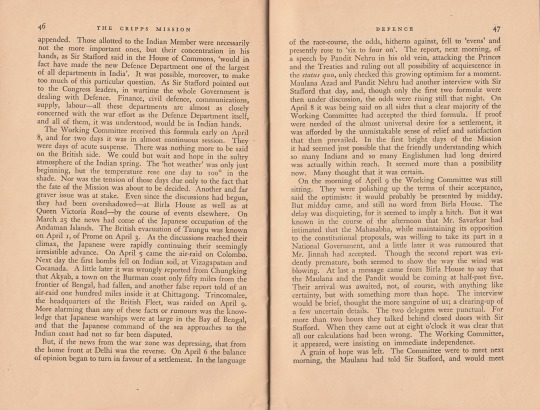
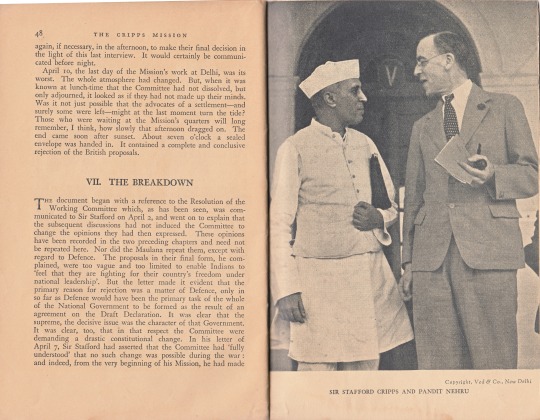
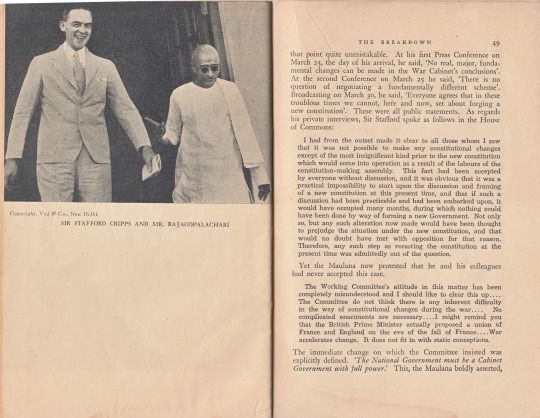
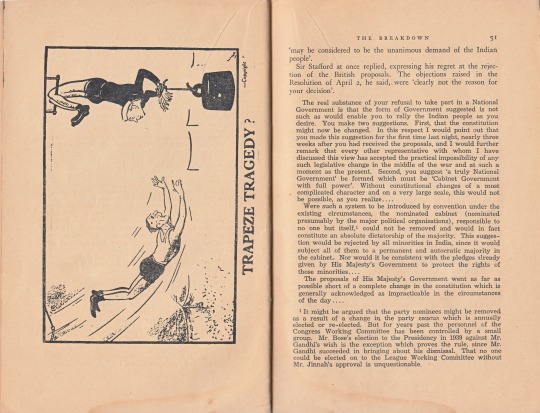
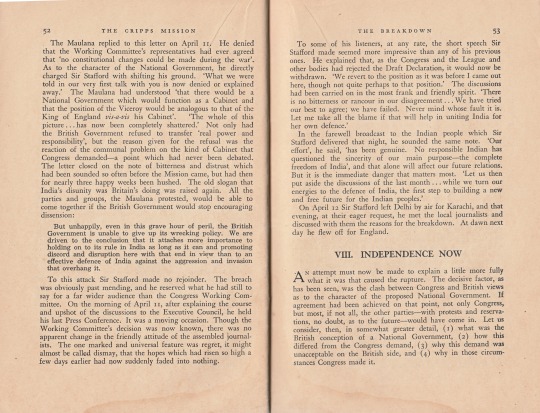
#The Cripps Mission#Cripps Mission#March 1942#1942#World War II#British government#Stafford Cripps#Sir Richard Stafford Cripps#Indian National Congress#INC#the Congress Party#Congress#Mahatma Gandhi#Mohandas Karamchand Gandhi#Gandhi#Mahātmā#Muhammad Ali Jinnah#محمد علی جناح#Mahomedali Jinnahbhai#Baba-e-Qaum#Quaid-e-Azam#مُحَمَّد عَلِی جِنَاح#Jinnah#All-India Muslim League#AIML#Muslim League#British India#Indian subcontinent#Freedom#Independence
0 notes
Note
hello! i completely agree with your gandhi post. yes, he was a horrible man. but, could you please cite the sources from where all of that information is from? cant really believe everything that is out of a simple internet search, right? so yeah it would be great if you could mention the sources thank you!
Yeah sure.
What are some secrets of Mahatma Gandhi - Quora
What are the dark secrets of Mahatma Gandhi that are not taught in schools? - Quora
Was Mohandas Karamchand Gandhi a good man or a bad man? Why? - Quora
What is the dark side of Gandhi?
How would Gandhi’s celibacy tests with naked women be seen today? - The Guardian
Women suffer from Gandhi's legacy - The Guardian
Yeah, its all from like 20 minutes of Google searches. You'd probably find more by doing a deep dive.
19 notes
·
View notes
Text

MAHATMA GANDHI (MOHANDAS KARAMCHAND GANDHI) DEATH ANNIVERSARY - MARTYRS DAY - SARVODAYA DAY - SHAHEED DIWAS - INDIA - தியாகிகள் தினம் - 30 JANUARY 2025 - மகாத்மா காந்தி (மோகன்தாஸ் கரம்சந்த் காந்தி) நினைவு தினம் - சர்வோதய தினம் - ஷாஹீத் திவாஸ் - இந்தியா - 30 ஜனவரி 2025.
0 notes